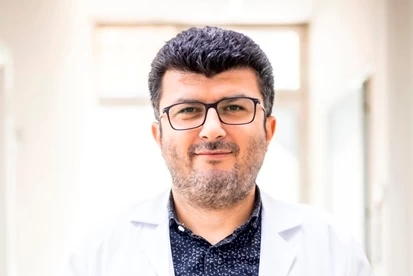
Endocrine Surgery
- Endocrine Surgery
- Scope of Endocrine Surgery
- Challenges and Innovations in Endocrine Surgery
- Surgical Decision-Making and Patient Follow-Up
- Conclusion
Endocrine surgery is a specialized field encompassing surgical interventions on endocrine glands. As a General Surgeon and Surgical Oncology Specialist, I primarily perform surgeries on organs such as the thyroid, parathyroid, adrenal glands, and pancreas. Endocrine glands play a crucial role in the body by producing hormones that regulate essential functions like metabolism, growth, and reproduction. Endocrine surgery is vital in treating pathologies affecting these glands.
Scope of Endocrine Surgery
The most commonly encountered areas in endocrine surgery include thyroid surgery, parathyroid surgery, adrenal gland surgery, and surgical interventions for endocrine tumors of the pancreas. Diseases of these glands often manifest as hormonal imbalances, masses, and sometimes the development of cancer. Surgical interventions become inevitable when these glands can no longer function properly, or when malignancy (cancer) is suspected.
- Thyroid Surgery: Thyroid surgery is one of the most frequently performed procedures in endocrine surgery. The thyroid gland, located at the front of the neck, produces hormones that regulate metabolism. Common thyroid conditions include goiter, nodules, hyper/hypothyroidism, and thyroid cancer. The most common surgical procedure is a thyroidectomy, where all or part of the thyroid gland is removed. This procedure is often necessary for patients with suspected thyroid cancer or those experiencing thyroid dysfunction accompanied by nodules. During surgery, it is crucial to carefully protect the parathyroid glands and the nerves controlling the vocal cords, which are located near the thyroid. Surgical experience and meticulous attention are critical in ensuring a successful outcome.
- Parathyroid Surgery: The parathyroid glands, located behind the thyroid, consist of four small glands responsible for regulating calcium balance. Parathyroid surgery is typically performed in cases of hyperparathyroidism, where the glands become overactive and cause elevated calcium levels in the body. Hyperparathyroidism can lead to osteoporosis, kidney stones, and other significant health issues. When one or more of these glands are overactive, surgical removal of the affected gland is necessary. Parathyroid surgeries can often be performed using minimally invasive techniques, allowing for quicker recovery and reducing the risk of postoperative complications. Careful monitoring of hormone levels and selecting the appropriate surgical strategy are key factors in the success of these operations.
- Adrenal Gland Surgery: The adrenal glands, located above the kidneys, are responsible for producing hormones such as cortisol and adrenaline. Adrenal tumors often present with excessive hormone production, leading to severe health problems. Conditions like Cushing's syndrome (excessive cortisol production) or pheochromocytoma (tumors producing adrenaline) may require surgical removal of the adrenal gland. In adrenal surgery, laparoscopic techniques are commonly used, offering less trauma and faster recovery for patients. However, open surgery may be necessary in some cases, depending on tumor size or location. If the tumor is malignant, a more aggressive surgical approach may be needed.
- Endocrine Tumors of the Pancreas: The pancreas is a complex organ with both endocrine and exocrine functions. Endocrine tumors arise from hormone-producing cells responsible for secreting insulin, glucagon, and other hormones. These tumors are rare but can cause significant health problems due to hormonal imbalances. Pancreatic tumors can be benign or malignant, and surgical treatment varies based on the tumor's location and size. Minimally invasive surgical options may be available for small, benign tumors, while larger or malignant tumors require more extensive surgery. One of the biggest challenges in managing pancreatic endocrine tumors is their rarity and the fact that they may grow slowly without causing symptoms. Thus, the diagnostic process and surgical planning must be carried out with great care.

Challenges and Innovations in Endocrine Surgery
Endocrine surgery is a delicate field that requires careful attention. The proximity of critical structures, such as the nerves controlling the vocal cords in thyroid surgery or the glands responsible for calcium balance in parathyroid surgery, makes it essential to protect these structures during surgery. Advances in technology, such as minimally invasive surgical techniques, robotic surgery, and intraoperative imaging, have significantly improved outcomes and reduced the risks associated with endocrine surgery.
The use of robotic surgery in endocrine surgery is also becoming more widespread. In thyroid and adrenal gland surgeries, robotic systems allow the surgeon to perform the operation with more precise and controlled movements. This not only leads to better cosmetic results but also accelerates postoperative recovery.
Surgical Decision-Making and Patient Follow-Up
Before performing endocrine surgery, it is crucial to establish an accurate diagnosis and thoroughly assess the need for surgery. Hormone levels, imaging techniques, and biopsy results form the foundation of this decision-making process. While surgery is often inevitable in many cases, a careful evaluation is necessary to minimize the risks associated with the procedure.
Postoperative follow-up is also essential. After thyroid and parathyroid surgeries, regular monitoring of hormone levels is necessary, while for adrenal and pancreatic tumors, it is important to monitor for any recurrence of the tumor. A multidisciplinary approach involving endocrinologists, oncologists, and other specialists is crucial in achieving the best outcomes for patients.
Conclusion
Endocrine surgery is a specialized field dealing with the surgical treatment of disorders affecting glands responsible for maintaining the body's hormonal balance. As a General Surgeon and Surgical Oncology Specialist, performing these surgeries successfully requires careful planning and precise execution. Protecting patients' long-term health and improving their quality of life are integral parts of this profession. Keeping up with advancements in endocrine surgery and applying the latest techniques is also essential to this process.
Wishing you healthy days ahead.

Assoc. Prof. Dr. Oktay Karaköse
General Surgery and Surgical Oncology Specialist





